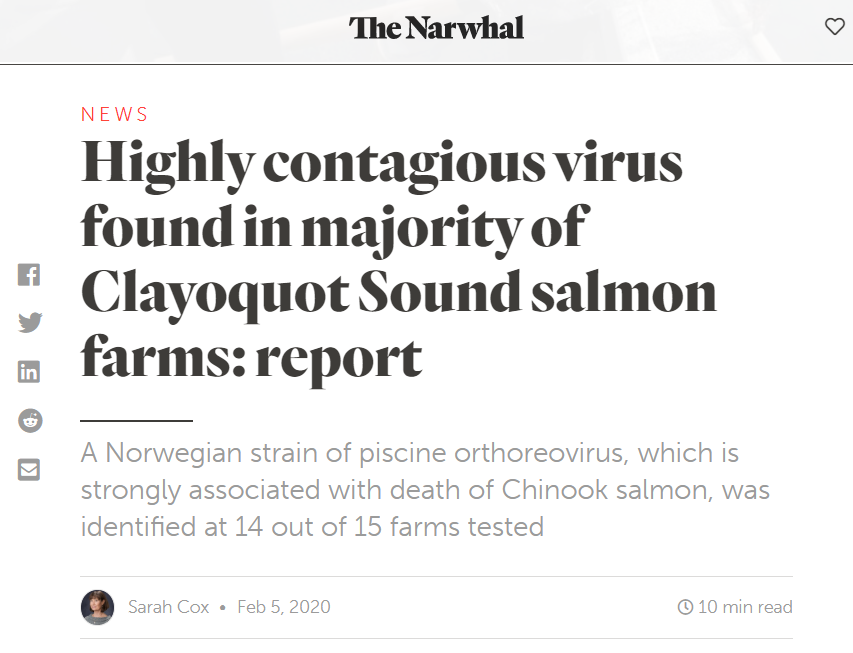 Það er ekki að ástæðulausu sem kanadísk stjórnvöld hafa ákveðið að banna sjókvíaeldi við vesturströnd landsins. Sýni sem tekin voru við sjókvíaeldisstöðvar með norskum laxi, sama stofni og er notaður hér við land, reyndust innihalda bráðsmitandi veiru sem sterkar vísbendingar eru um að sé villtum Kyrrahafslaxi mjög skeinuhætt. Þessi veira reyndist vera grasserandi í fjórtán af fimmtán eldissvæðum við ströndina.
Það er ekki að ástæðulausu sem kanadísk stjórnvöld hafa ákveðið að banna sjókvíaeldi við vesturströnd landsins. Sýni sem tekin voru við sjókvíaeldisstöðvar með norskum laxi, sama stofni og er notaður hér við land, reyndust innihalda bráðsmitandi veiru sem sterkar vísbendingar eru um að sé villtum Kyrrahafslaxi mjög skeinuhætt. Þessi veira reyndist vera grasserandi í fjórtán af fimmtán eldissvæðum við ströndina.
Allar sjókvíar með norskum eldislaxi eiga að vera farnar út sjó við vesturströnd Kanada fyrir árið 2025.
„The report by Clayoquot Action, a Tofino-based conservation society, says feces, flesh and scale samples from 14 out of 15 farms tested positive for the piscine orthoreovirus, a disease that gained notoriety after a video of bloody discharge from packing plants in Tofino and Campbell River went viral in December 2017.
Laboratory testing by the B.C. government showed the underwater effluent was contaminated with piscine orthoreovirus, a disease found in 80 per cent of farmed Atlantic salmon that is linked to a host of fish health problems, including heart and skeletal muscle inflammation and haemorrhages in internal organs.
Clayoquot Action campaigns director Bonny Glambeck said it’s particularly concerning to find piscine orthoreovirus on Chinook salmon farms located along wild salmon migratory routes in the Clayoquot Sound UNESCO Biosphere Reserve, off the west coast of Vancouver Island.
Four of the active farms the group tested are owned by Creative Salmon, the only company raising Chinook on a large scale in open net pen farms in B.C. Most B.C. open net pen operations — including 11 other active farms tested for the study, which are owned by Cermaq, a Mitsubishi subsidiary headquartered in Norway — produce Atlantic salmon, a species not native to the Pacific Coast.
“Wild Chinook salmon in Clayoquot Sound are on the brink of extinction,” Glambeck told The Narwhal.
“This is just the final nail in the coffin with all the stresses that the wild salmon are undergoing right now.”
